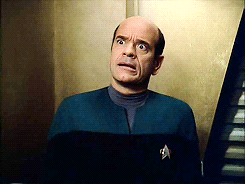Putting this in TNG since my question is ultimately about Picard, even though the majority of this post is about a Voyager episode.
Recently rewatched the Voyager episode Latent Image.
To put it in a nutshell: 1.5 years before ep: EMH severely malfunctions because of an ethical dilemma he can't come to terms with and crew sees no other solution than denying him access to all his memories from those events (and presumably resetting some parts of him). EMH finds this out in the 'present' of the episode, Janeway initially tries to simply delete his memories of finding this out first. When this doesn't succeed he seems to go the same downward spiral as 1.5 years before and Janeway sees no other alternative than resetting him again, until after a discussion with Seven, she decides that perhaps the best way forward is to let him resolve this battle on his own, in terms of "personal growth" and 'exceeding his programming' and so on.
Now, my issue is not with the episode itself, but in the setup: partially resetting the EMH as a solution, 1.5 years ago. I don't really think this is how Voyager likes to portray Janeway, but that it was simply necessary for the setup of this episode.
So I was wondering: suppose Picard would have been in Janeway's position. Stranded in the Delta Quadrant with no Starfleet backup, critically dependent on the EMH, since no other doctor was aboard. Would he have adopted the same solution as Janeway did initially? If not, how would he have resolved this problem?
Recently rewatched the Voyager episode Latent Image.
To put it in a nutshell: 1.5 years before ep: EMH severely malfunctions because of an ethical dilemma he can't come to terms with and crew sees no other solution than denying him access to all his memories from those events (and presumably resetting some parts of him). EMH finds this out in the 'present' of the episode, Janeway initially tries to simply delete his memories of finding this out first. When this doesn't succeed he seems to go the same downward spiral as 1.5 years before and Janeway sees no other alternative than resetting him again, until after a discussion with Seven, she decides that perhaps the best way forward is to let him resolve this battle on his own, in terms of "personal growth" and 'exceeding his programming' and so on.
Now, my issue is not with the episode itself, but in the setup: partially resetting the EMH as a solution, 1.5 years ago. I don't really think this is how Voyager likes to portray Janeway, but that it was simply necessary for the setup of this episode.
So I was wondering: suppose Picard would have been in Janeway's position. Stranded in the Delta Quadrant with no Starfleet backup, critically dependent on the EMH, since no other doctor was aboard. Would he have adopted the same solution as Janeway did initially? If not, how would he have resolved this problem?






